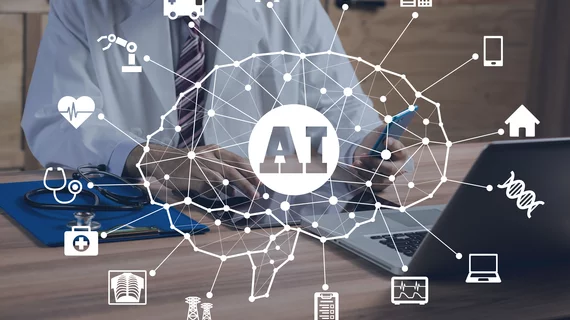AI improves detection of severe CAD in stress echocardiograms
An advanced AI model can help clinicians identify severe coronary artery disease (CAD) in stress echocardiograms, according to new findings published in JACC: Cardiovascular Imaging.
The analysis explored the overall effectiveness of the EchoGo AI platform developed by Ultromics. Researchers tested the platform on a retrospective study of patients who underwent stress echocardiography at a single facility in the United States. All exams were performed from 2011 to 2017.
A team of two U.S.-based and two U.K.-based echocardiographers also reviewed each exam twice—once with knowledge of the AI’s decision and then again, one month later, without that knowledge. The echocardiographers were independent of any other aspect of the study.
Overall, the AI platform correctly identified patients without CAD in 92.7% of cases. It identified patients with CAD 84.4% of the time. This was good for a 10% improvement compared to the human eye, the authors found.
In addition, access to the AI-generated classifications was associated with increasing the level of agreement among the four specialists by 15% or more.
Ross Upton, PhD, the CEO and co-founder of Ultromics, was the study’s lead author.
"Traditionally, CAD analysis is done through manual observations,” Upton said in a prepared statement. “However, the complexity of identifying subtle features within an image means that it is not always easy to correctly identify CAD on first visit, and accurate diagnoses can be subject to the operator’s expertise. This means heart disease, the number one global killer, gets missed one in five times. With the support of our AI service, clinicians can make confident diagnoses and spot features which would have been impossible to detect using traditional methods.”
Ultromics did help fund this analysis. Click here to read the full study in JACC: Cardiovascular Imaging.

